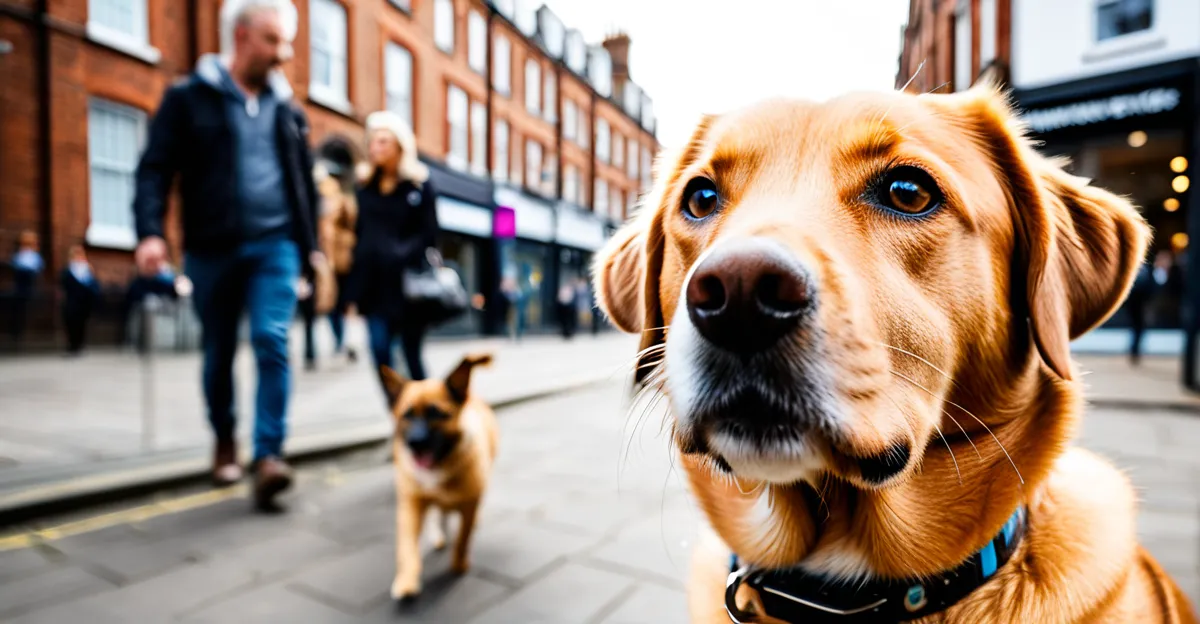The Role of Pet-Friendly Services in Modern Urban Life
Pet-friendly services have become a cornerstone of urban life UK, responding to the growing number of city dwellers who include pets in their households. These services span various sectors, making city living more inclusive and convenient for pet owners. In the context of UK cities, pet-friendly services primarily encompass housing, businesses, and public spaces designed to accommodate pets comfortably.
Housing initiatives often feature pet-friendly policies—such as relaxed pet restrictions and designated pet areas within apartment complexes—to attract and retain residents who prioritize their animals. Similarly, many businesses now welcome pets, offering amenities like water bowls or treats, fostering inclusive community atmospheres. Public spaces, including parks and footpaths, are increasingly adapted to support pets, with designated zones and waste disposal facilities ensuring cleanliness and safety.
Also to discover : What are the most popular UK pet-friendly hiking trails?
This shift reflects broader pet ownership trends in UK urban environments, where budgeting for pet care is balanced with the challenges of limited space and busy lifestyles. Pet-friendly services enable city residents to maintain the companionship of their animals without compromising the demands of urban life. As a result, these initiatives contribute to building more inclusive communities where the presence of pets is integrated seamlessly into everyday living.
Social and Health Benefits of Pet-Friendly Initiatives
Pet-friendly services significantly enhance mental health and emotional wellbeing in urban life UK. For many city dwellers, pets provide vital companionship that counters loneliness. Studies confirm that interacting with animals reduces stress hormones and fosters relaxation, contributing to improved community wellbeing.
Additional reading : Unveiling the secrets of the ring-tailed lemur
Moreover, pet-friendly initiatives promote social interaction. Events like community dog walks or pet-friendly markets create spaces where residents naturally connect, forming bonds beyond their pets. These interactions nurture stronger urban communities, enhancing overall social cohesion and inclusion.
From a public health perspective, encouraging urban pet ownership supports active lifestyles. Regular walks to local dog parks UK increase physical activity, benefiting cardiovascular health and reducing risks related to sedentary lifestyles. Pet ownership also encourages responsible habits, such as proper waste disposal, that align with broader city health objectives.
In sum, the integration of pet-friendly services resonates beyond individual owners. It cultivates healthier, more connected residents and active, thriving neighbourhoods, illustrating how pets play a pivotal role in urban wellbeing today.
Practical Improvements to Urban Living for Pet Owners
Modern urban amenities increasingly cater to pets, enhancing city living for owners in UK cities. One key development is the proliferation of dog parks UK, designed as safe, fenced areas that encourage exercise and socialising among dogs and their owners. These parks also reduce strain on crowded public spaces, offering dedicated zones that support healthy pet routines within bustling urban centres.
Pet-friendly housing policies have evolved to include features like on-site pet washing stations, communal pet areas, and flexible pet clauses in rental agreements. Such initiatives reflect a growing recognition of pets as family members, making dwellings more appealing and inclusive. This trend helps residents find accommodation aligned with their lifestyle while fostering inclusive communities where pet ownership is respected.
Public transport and local businesses have also adapted to be more accessible for pet owners. Trains, buses, and cafes increasingly welcome animals, providing water bowls and tolerating leashed pets. These changes remove barriers to mobility and social participation, integrating pet owners more fully into urban life UK. Together, these practical improvements signify a shift towards cities that acknowledge and accommodate the needs of pets and their owners, enriching urban experiences for all.
Policy, Government Initiatives, and Industry Best Practices
Pet-friendly services in urban life UK are increasingly supported by UK council initiatives and government policies aimed at fostering inclusive communities. Local councils promote pet-friendly regulation through strategic urban planning that integrates pet welfare into public space management. For instance, many councils mandate the inclusion of designated dog zones and waste disposal facilities in parks, ensuring urban coexistence that balances the needs of pet owners and non-pet owners alike.
Industry best practices emphasise collaborative design approaches, where developers and municipal planners work together to create accessible and safe environments for pets within housing and public infrastructure. This includes flexible pet policies in rental agreements and the installation of pet amenities in public transport hubs, reflecting growing recognition of pets’ roles in city living.
Looking ahead, future trends in urban planning focus on expanding pet-friendly services by embedding pet accessibility in new residential and commercial developments. Government frameworks encourage active resident involvement to tailor urban spaces to diverse community needs, enhancing community integration and wellbeing. By adopting comprehensive pet-friendly regulations, UK cities can sustain vibrant, inclusive environments that embrace the coexistence of people and pets harmoniously.







